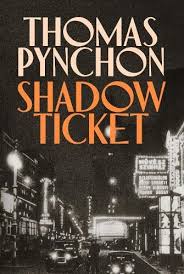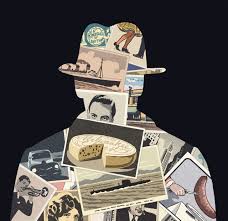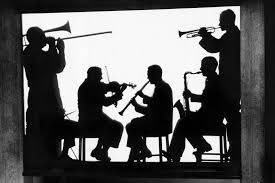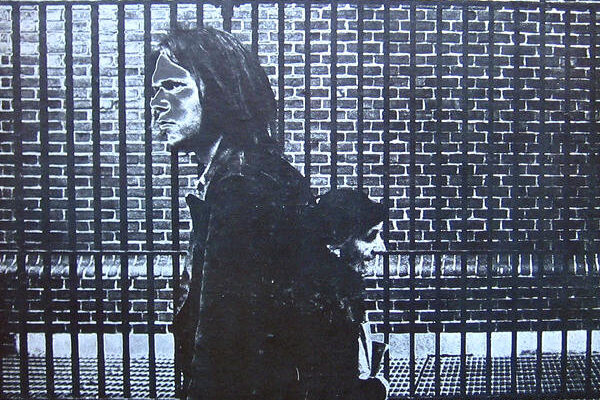‘Must read’ book: Shadow Ticket – Thomas Pynchon

Thomas Pynchon is back. And yes, it’s been over a decade since Bleeding Edge. Shadow Ticket isn’t just another Pynchon novel – it’s a plunge into a world where history, conspiracy, and absurdity collide in ways only he can pull off. Set in 1932 Milwaukee, in the waning days of Prohibition and the depths of the Great Depression, the novel follows Hicks McTaggart, a former strike-breaker turned private investigator. What begins as a seemingly routine missing-person case – a missing cheese heiress – spirals into something far more tangled, unpredictable, and delightfully strange
Hicks is the quintessential Pynchonesque protagonist: flawed, bewildered, sometimes heroic in unexpected ways, often comically out of his depth. He’s a man caught in a web of forces far larger than himself, and the world he navigates is thick with detail. From smoky speakeasies to political rallies, from jazz clubs to shadowy European borderlands, Pynchon renders 1932 with a historian’s eye and a satirist’s wit. Even the smallest details – cheese fraud, swing music, obscure bureaucratic manoeuvrings – feel vital, painting a world that is both realistic and slightly off-kilter. It’s a history lesson wrapped in absurdity, and Pynchon makes it feel thrilling rather than didactic
The novel’s humour is one of its most intoxicating qualities. Pynchon’s signature absurdity runs through every chapter. There’s wit in the dialogue, sly puns, bizarre set pieces, and occasional flirtations with the supernatural. Hicks often stumbles through events he barely understands, while the world around him churns with conspiracies, secret agents, and shadowy power plays. It’s funny, yes, but there’s an edge to the comedy. The absurdity highlights the darker undercurrents of the era: political instability, economic despair, and the slow rise of fascism abroad. The juxtaposition is striking. One minute, you’re laughing at a ridiculous character or scenario; the next, you’re aware of the real historical weight lurking beneath the farce
Pynchon excels at creating a sense of time and place. Milwaukee of the 1930s is vividly drawn: the buildings, the social strata, the clandestine meetings and secret deals – all rendered with a love of detail that makes the world feel lived-in. The novel then leaps across the Atlantic, touching on Europe’s fragile political landscape, offering glimpses of rising Nazism, political intrigue, and espionage. The contrast between America’s domestic chaos and Europe’s looming catastrophe adds depth and urgency to the story. Pynchon’s interest in history is never passive; it’s filtered through the lens of paranoia, humour, and speculation, creating a world that feels at once grounded and fantastical
And then there’s the cast of characters. Hicks is the anchor, but the supporting roles are equally compelling. Eccentric mobsters, shady intelligence agents, flamboyant jazz musicians, and mysterious heiresses populate the pages. Many of them verge on caricature, yet they are imbued with life, quirks, and unpredictable motives. Pynchon thrives in the margins, giving us side characters who can steal a scene with a single line or a bizarre action. It’s chaotic, yes, but in the most entertaining way. Readers find themselves invested not only in Hicks’s journey but in the strange, often hilarious world around him
The plot, however, is intentionally messy. If you’re expecting a tightly wound detective story, prepare for something different. Shadow Ticket is episodic, sprawling, and at times diffuse. Threads meander, digressions abound, and narrative coherence often takes a back seat to atmosphere and thematic exploration. Some characters and subplots feel underdeveloped, left dangling in midair. But this is Pynchon’s style: the novel mirrors life itself, where events rarely resolve neatly, and the absurd and the catastrophic coexist. For readers willing to embrace the chaos, these digressions are part of the joy – they enrich the world, provide comic relief, and create space for reflection
Thematically, Shadow Ticket resonates beyond its historical setting. Pynchon draws parallels between the 1930s – economic collapse, political polarisation, the rise of extremist movements – and contemporary anxieties. Reading it now, it’s hard not to see echoes of today’s political landscape. The novel reminds us that history is cyclical, that societal instability and paranoia are perennial, and that chaos often lurks just beneath the surface of daily life. This thematic resonance adds weight to what might otherwise be dismissed as mere historical farce. Pynchon doesn’t just tell a story; he invites reflection
 Despite its density and occasional narrative looseness, the novel is relentlessly engaging. It is packed with memorable moments, from tense confrontations to comic set pieces, and Pynchon’s prose remains as sharp and inventive as ever. Sentences leap, twist, and surprise. The reader is constantly rewarded for attention to detail, and there’s a pleasure in navigating the dizzying array of characters, locales, and historical references. Compared to Pynchon’s monumental works like Gravity’s Rainbow or Against the Day, Shadow Ticket is lighter, more playful, but no less distinctly his. It is a celebration of his style, rather than a reinvention, and that is part of its charm
Despite its density and occasional narrative looseness, the novel is relentlessly engaging. It is packed with memorable moments, from tense confrontations to comic set pieces, and Pynchon’s prose remains as sharp and inventive as ever. Sentences leap, twist, and surprise. The reader is constantly rewarded for attention to detail, and there’s a pleasure in navigating the dizzying array of characters, locales, and historical references. Compared to Pynchon’s monumental works like Gravity’s Rainbow or Against the Day, Shadow Ticket is lighter, more playful, but no less distinctly his. It is a celebration of his style, rather than a reinvention, and that is part of its charm
Ultimately, Shadow Ticket is a testament to Pynchon’s enduring imagination. It’s chaotic, hilarious, strange, and deeply human. Hicks McTaggart’s journey is one of confusion, discovery, and reluctant heroism, but it’s also a journey through a world that is vivid, absurd, and strangely familiar. Longtime Pynchon fans will find it a joyous return to form. New readers may be dazzled, confused, or delighted – or all three at once. The novel is not just about plot or resolution; it’s about experience: the thrill of history, the tension of conspiracy, the delight of absurdity
Shadow Ticket isn’t just a book – it’s an experience. It’s messy, it’s funny, it’s strange. It’s a reminder that Pynchon’s imagination is alive and kicking. For longtime fans, it’s a joyous return; for newcomers, it’s a dizzying, often hilarious entry into his world. If you love historical detail, conspiracies, eccentric characters, and prose that keeps you on your toes, buckle up. This ride doesn’t stop until the final page.
Leave a reply
You must be logged in to post a comment.







